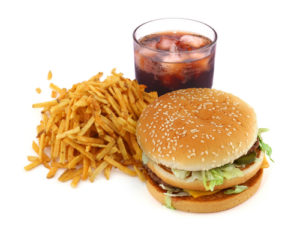 Another interesting study looking at whether being overweight is linked to premature death, heart attacks, and diabetes. This study looked at sets of twins, in which one is heavier than the other, and followed them long-term (average 12.4 years) and found that NO - being overweight or obese (as measured by Body Mass Index or BMI) is NOT associated with premature death or heart attack (myocardial infarction), but it is associated with higher rates of type 2 diabetes. These results are in contrast with what a large study recently found. From Science Daily:
Another interesting study looking at whether being overweight is linked to premature death, heart attacks, and diabetes. This study looked at sets of twins, in which one is heavier than the other, and followed them long-term (average 12.4 years) and found that NO - being overweight or obese (as measured by Body Mass Index or BMI) is NOT associated with premature death or heart attack (myocardial infarction), but it is associated with higher rates of type 2 diabetes. These results are in contrast with what a large study recently found. From Science Daily:
Higher BMI not associated with increased risk of heart attack or early death, twin study shows
A study of 4,046 genetically identical twin pairs with different amounts of body fat shows that twin siblings with a higher Body Mass Index, as a measure of obesity, do not have an increased risk of heart attack or mortality. The study, conducted by researchers at Umeå University in Sweden, also shows that a higher BMI is associated with an increased risk of type 2 diabetes...."The results suggest that lifestyle changes that reduce levels of obesity do not have an effect on the risk of death and heart attack, which contradicts conventional understandings of obesity-related health risks," says Peter Nordström, researcher at the Department of Community Medicine and Rehabilitation at Umeå University.
In the cohort study, Peter Nordström and research colleagues at Umeå University compared health data from 4,046 monozygotic twin pairs. All twins in the study had different levels of body fat, as measured in BMI....During a follow-up period of on average 12.4 years, differences between the twins were compared when it comes to incidents of mortality, heart attack and type 2 diabetes. The results clearly showed that twin siblings with a higher BMI did not have an increased risk of mortality or heart attack compared to their thinner counterparts. However, twins with a higher BMI did have an increased risk of developing type 2 diabetes.
The results showed that: - Among twin siblings with a higher BMI (mean value 25.1), there were 203 heart attacks (5 %) and 550 deaths (13.6 %) during the follow-up period. - Among twin siblings with a lower BMI (mean value 23.9), there were 209 heart attacks (5.2 %) and 633 deaths (15.6 %) during the same period. - Among the 65 twin pairs in the study who had a BMI difference of 7 or higher, and where the larger twin siblings had a BMI of 30 or higher, there were still no noticeably increased risk of mortality or heart attack associated with a higher BMI.
The study, described in the article Risks of Myocardinal Infarction, Death, and Diabetes in Identical Twin Pairs With Different Body Mass Index, is based on the Swedish Twin Registry, the largest of its kind in the world. The median age of the twins in the study was 57.5 and participants' ages ranged from 42-92. The cohort study was conducted between 1998 and 2003, with follow-ups regarding incident of mortality, heart attack and diabetes during a 10 year period until 2013. One study limitation was that weight and length (used to calculate BMI) was self-reported.

 Studies have found that increased nut consumption has been associated with
Studies have found that increased nut consumption has been associated with  Yup, according to a new mega-study, being overweight or obese is linked to higher risk of dying prematurely than being normal weight. And the more you weigh, the greater the risk.
Yup, according to a new mega-study, being overweight or obese is linked to higher risk of dying prematurely than being normal weight. And the more you weigh, the greater the risk.  Of course eating meals prepared at home is healthier! The
Of course eating meals prepared at home is healthier! The  Previous research on the health benefits of eating fish, fish oil supplements, and other sources of omega-3 fatty acids has shown mixed
Previous research on the health benefits of eating fish, fish oil supplements, and other sources of omega-3 fatty acids has shown mixed  A second study was just published about the benefits of eating whole grains daily - again a significantly lower risk of premature death, and again the effects were dose-related. That is, the more whole grains eaten daily, the lower the risk of early death. Like the
A second study was just published about the benefits of eating whole grains daily - again a significantly lower risk of premature death, and again the effects were dose-related. That is, the more whole grains eaten daily, the lower the risk of early death. Like the